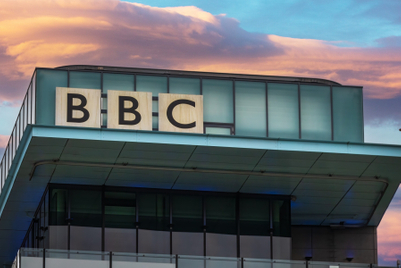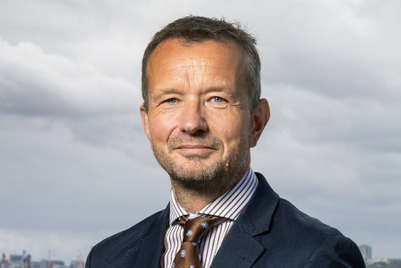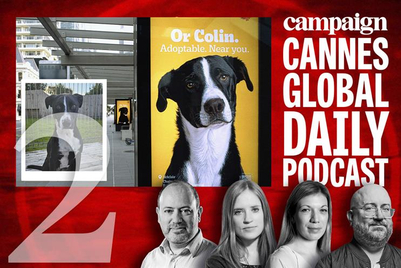
| PARTNER CONTENT |
“This is 2LO, the London station of the British Broadcasting Company calling. 2LO calling.” These are the words that kicked off the first-ever BBC broadcast, made from a London studio on November 14, 1922, by a fledgling public service broadcaster boasting a staff of four.
Almost a century later, the BBC (now the British Broadcasting Corporation) is the largest broadcaster in the world, delivering content to a record-high global audience of 426 million people per week in 2019 – up 13% over the year. The BBC is also globally venerated for impartiality and authenticity, polling as the world’s most trusted news source.1
This acclamation formed the backdrop for ‘The Power of an Authentic Voice’, an event for industry leaders and experts organised by BBC News in conjunction with Campaign Asia and held at The Arts House in Singapore on October 22, 2019. Speakers from BBC Global News and BBC StoryWorks (BBC’s content marketing arm) presented findings from their new thought-leadership study Audio:Activated; explained the commercial opportunities of branded podcasts; and revealed details of the BBC’s suite of new products.

Opening the event, Alistair, McEwan, SVP Commercial Development, BBC Global News highlighted the importance of authenticity in our current climate of disinformation.
“In these incredibly uncertain times, we are facing a barrage of fake news every single day,” he said. “And the value of trust is fundamentally important as an international media organisation – to be able to tell truth to power and to support our brands as they try to navigate these ever more complex corridors in different territories and markets.”
McEwan revealed that the BBC’s digital R&D team has been looking at how to harness audio amid the format’s ongoing resurgence. Digital audio spend has more than doubled in just three years, and is projected to clear half a billion (534 MN) USD in 2020, due to a fast growing customer base.
“At BBC, our legacy is very much in audio – and we see this as a radio renaissance,” said McEwan. “What was an old medium is being reimagined and repurposed.”
Outside of streaming music, news and podcasts are vital to VAD use, with the top three types of audio content consumed now being music (67%), news (50%) and podcasts (37%). As the world’s top podcaster by volume of podcasts, the BBC has a vested interest in bringing the advantages of audio to brand partners – particularly in APAC, where growth in digital audio is high but remains relatively nascent. Some 30% of people in APAC have listened to a podcast in the last month, compared to 40% globally.
Audio:Activated is a detailed thought-leadership study commissioned by BBC Global News, to analyse the persuasive power and impact of podcasts. The study found that branded podcasts are an effective method for advertisers, and can achieve unique audience cut-through, notably with ad avoiders.
Sally Wu, director of Research and Insights, APAC, BBC Global News, presented the study’s findings at the event. “Digital audio brings a new and untapped audience who are not reachable via traditional media,” she said. “It brings additive value to the traditional media reach.”

Among the study’s detailed findings, there are three take-homes.
Firstly: for branded podcasts, branding stands out from the content. “When we evaluated neuroscience metrics for iShares by BlackRock, a branded finance podcast created by BBC Storyworks, the branding moments had a higher impact than the actual content,” explained Wu. “This is significant because radio spot ad ratings are traditionally around 5% lower for content than branding. But in the iShares by BlackRock example, we see the opposite – the branding moment had a 15% higher brand impact than the content itself.”
Secondly: listeners create implicit associations with brands, based on words they hear. Using the word ‘innovation’ 12 times during the BlackRock podcast resulted in an uplift in listeners who chose ‘innovation’ as a brand attribute of BlackRock. “This association with the word is very significant,” explained Wu. “Listeners create a subconscious association with the brand from the keywords they hear.”
Thirdly: listening while active increases engagement and long-term memory of the brand. Some 94% of podcast consumption occurs while performing another activity, such as housework, driving or exercising. Listeners showed double-digit uplift for engagement, emotional intensity and long-term memory build-up when performing other tasks.
“We are exposed to millions of messages every day – in the world of neuroscience, this can be traced back to 'low involvement processing’,” explained Wu. “But when we are busy doing something else, our mental barrier is lowered, and the branding message gets cut through easier.”
The BBC’s innovative forays into audio are further exemplified by the announcement of Beeb (current working title) – a digital voice assistant currently in development.
“We think Beeb will herald a new way of accessing content for the BBC, in lots of different ways,” said McEwan. “We produce over 3,000 articles a day. As we're moving into audio, we want to be able to have the capability of taking all that content and making it available to audiences with a voice-activated device.”

Beeb will transform text-based articles and features on BBC into VAD-friendly audio using synthetic speech generation technology known as Songbird. Beeb, which will be available internationally and commercialised outside the UK, will be able to answer questions using AI and machine learning in conjunction with the BBC’s archive, and automatically translate content into local languages.
Further key announcements at the Singapore event include the extension of the BBC’s programmatic audio offerings, in conjunction with Acast. Private marketplace and programmatic guaranteed are now available for campaigns on the BBC’s extensive network of digital podcast inventory, as well as its apps and websites.
Two new content platforms are also launching on BBC.com: BBC Future Planet, which will focus on sustainability, and BBC Future You, which revolves around wellness. Both titles seek to strike through the pseudoscience that plagues these important topics, offering readers features and news built on evidence, facts and authenticity.
Since 1922, the BBC’s mission has been to “inform, educate and entertain” – a vision that is arguably more relevant now than ever. As the corporation reveals new ways for brands to reach its audience in meaningful ways, its authenticity will remain a valuable calling card for advertisers, readers and listeners alike.
1Source: Brand tracker H1 2018. Percentage who consider the brand 'Trustworthy' in an implicit association test. Base: (n=4,769), 18-65 y/o international consumers who are aware of and would consider brand. USA, Germany, Australia, Singapore, Nigeria, India. Coducted by Insites Consulting, an independent market research agency.


.jpg&h=334&w=500&q=100&v=20250320&c=1)


.png&h=334&w=500&q=100&v=20250320&c=1)


.jpg&h=334&w=500&q=100&v=20250320&c=1)
.jpg&h=334&w=500&q=100&v=20250320&c=1)





.jpg&h=268&w=401&q=100&v=20250320&c=1)



.jpg&h=268&w=401&q=100&v=20250320&c=1)